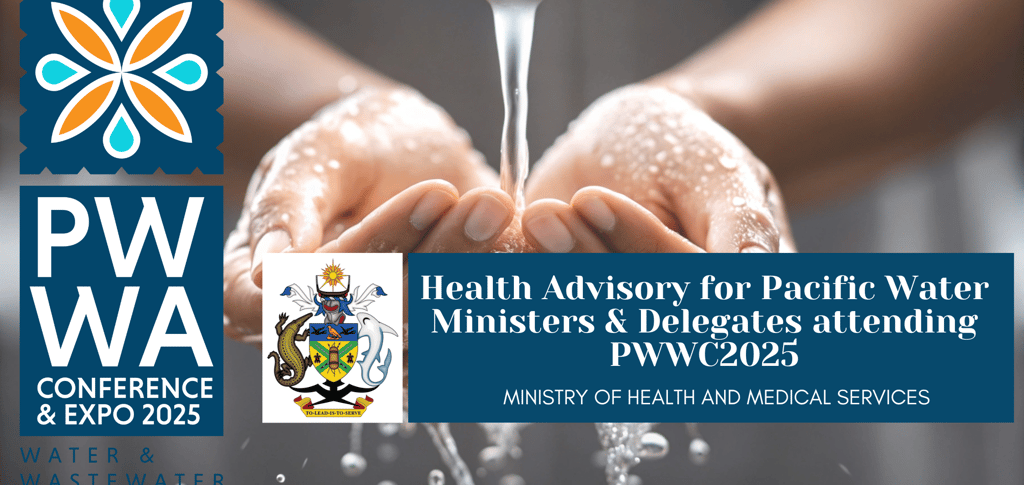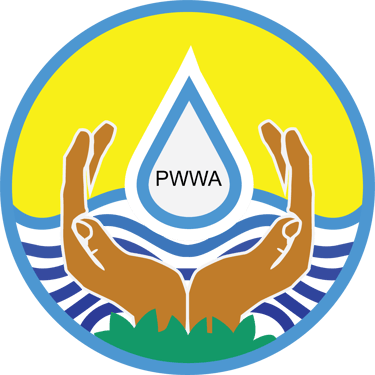Health Advisory for Leaders and delegates attending the PWWC2025.
The Solomon Islands Ministry of Health provides simple travel health guidance to ensure a safe and enjoyable experience for all delegates at PWWC2025.
8/19/20253 min read


Issued by the Government of Solomon Islands
The Government of Solomon Islands is proud to be hosting the Pacific Water and Waste Water Ministers and Authorities Meeting in its capital city Honiara this year from 25th to 29th of August, 2025. Leaders and delegates from 24 countries in the Pacific and in the region, including Solomon Islands’ Leaders are expected to attend this event.
This large mass gathering poses unique public health risks, not only to citizens of Solomon Islands, but also to visitors who may be exposed to health conditions existing, or to microorganisms potentially introduced and, or circulating in the host country during the meeting period. The Government of Solomon Islands and its partners are working hard to ensure that your stay during the Pacific Water and Waste Water Ministers and Authorities is healthy and safe. But each leaders and delegate are equally responsible for protecting their health while in Solomon Islands. To protect yourself against illness and injury, please plan ahead and follow the health advice below.
BEFORE YOU TRAVEL
1. Vaccinations
You should be up-to-date on your routine and recommended vaccinations, including for measles, mumps and rubella (MMR), diphtheria, tetanus, pertussis, and polio. You may also want to get vaccines for Hepatitis A, Hepatitis B, Typhoid Fever, and seasonal influenza. Consult your general practitioner for more advice about vaccinations
2. Physical examination and pre-existing medical conditions
For your own safety and wellbeing, leaders and delegate should be fit for travel. All delegates are required to complete a physical examination prior to coming to Solomon Islands. Those with pre-existing medical conditions must ensure that they are cleared for travel by scheduling a doctor’s appointment at least four weeks before travel. Talk to your doctor about medicines that you may need when travelling to Solomon Islands during your stay.
3. Preventative treatment against malaria
Malaria is present across the Solomon Islands. For effective malaria prevention, you should avoid mosquito bites (see details under vector-borne diseases) and consider chemoprophylaxis with antimalarial drugs. Recommended options include Doxycycline, Atovaquone-proguanil, and Mefloquine. Make sure to consult a doctor at least two weeks before travelling to Solomon Islands to get advice on the most suitable medication and dosage based on your health and any potential issues with the medication.
DURING THE MEETING
1. Food and Safety
To prevent illnesses transmitted through food and water, consume food that is thoroughly cooked, and wash fruits and vegetables if they are not peeled. Drink water that is safe and clean (no tap water). Follow food safety and water safety guidelines. Practice good hand hygiene, including washing your hands frequently with soap and water, especially before handling food and after going to the toilet. Although hand sanitising gel may be effective against respiratory pathogens, such as viruses that can cause influenza, and the common cold, it may not be effective against gastrointestinal pathogens. Therefore, there is no substitute for good hand-washing with soap, running water and use of clean paper towel.
2. Sexually Transmitted Infections
To reduce the risk of contracting sexually transmitted infections, such as HIV, chlamydia and gonorrhoea, practice safe sex and use condoms correctly.
3. Vector borne diseases
Take measures to avoid, and to protect against, mosquitoes and insects that spread diseases, such as malaria and dengue fever by: wearing appropriate clothing, such as long-sleeved shirts and long pants; applying an insect repellent (containing one of the following substances: DEET, picaridin, citriodiol, IR3535) to exposed skin; treating clothes with permethrin for added protection; and sleeping under insecticide-treated bed nets.
Consider preventive treatment against malaria
4. Smoke-free areas
Meeting venues are completely smoke-free areas including public areas, transportation, restaurants and bars
5. Heat
Dehydration and heat-related illness are common in mass gatherings in tropical climates. Avoid long exposure to the sun during the day and wear sunscreen to avoid sunburn. Stay hydrated by frequently drinking safe water
6. Support Waste Management
Help us keep Solomon Islands green and clean! Use water containers and dispensers if at all possible. Use less plastic and prefer reusable bags. Throw your rubbish in bins.
IF YOU DO NOT FEEL WELL
If you are experiencing fever, diarrhea and/or are vomiting)
Go immediately to the nearest clinic (health-care centre) or contact the following numbers below:
Hospital Emergency Health Contact numbers (21068, 44000)
National Health Emergency Operations Center- 22157, After Hours- 7607007
Dr Howard Marau (Medical Superintendent Office) – 7404508
AFTER THE MEETING
If you develop any illness after returning from Solomon Islands, you are obliged to notify immigration and local Healthcare authorities. You should report any illnesses you have developed, and indicate your travel history.


